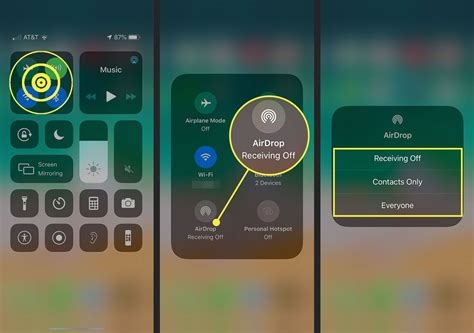
In any country of the world, China too, if you’re in the same room with somebody you can hand that somebody a memo, a newsletter, a book. As long as a regime’s censors are not right there in the room with you, they cannot interfere, at least not at that moment.
You can still hand printed matter to somebody. But in addition to all the ways that the CCP was already censoring electronic communications, in mid-2023 it was planning to further restrict the use of features like Apple’s AirDrop to share files between gadgets (“China wants to restrict AirDrop and Bluetooth, curbing activists’ efforts,” Evening Standard, June 9, 2023)
Months before, Apple had already acted to help China throttle AirDrop.
In November 2022, Apple implemented an AirDrop restriction that capped the time users could receive files from people outside their contacts list.
Following a 10-minute window, iPhones would revert to a mode that only allows them to receive files from contacts.
At the time, Apple said the change was aimed at curbing the spread of unwanted messages sent with AirDrop, and that it would be rolling out the changes globally.
Now, the Cyberspace Administration of China, the country’s internet regulator, has launched a month-long public consultation on the proposal to further restrict file-sharing tools, in order to “prevent and resist the production, copying and distribution of undesirable information”.
“The authorities are desperate to plug loopholes on the Internet to silence opposing voices,” human rights activist Lin Shengliang told the BBC, “This is China moving towards 1984.”
“Curbing of unwanted messages” can mean so many things. Unwanted by whom? Apple was accommodating the Chinese government’s desire to make it harder for persons protesting the government to talk to each other. In such cases, it is the state that regards the messages as “unwanted,” not the senders or receivers.
In a related report (“Apple limits AirDrop in China after its use in protests”), the Verge stressed that AirDrop is no “bastion for free speech” inasmuch as it can be used to pursue bad communicative ends as well as good ones. What the Verge did not explain is so what. A medium is not a message, and tools are not motives or purposes. Every particular thing that human beings can use can be used for both good and bad ends.
After launching a period of public consultation about its proposal to further coagulate local file-sharing, what did the Cyberspace Administration of China end up doing?
I can find no report about what actions that the CAC took, if any, to implement its proposal. But in January 2024, the South China Morning Post reported that a forensics firm in Beijing was helping police “to track down people using Apple’s AirDrop feature to send ‘inappropriate speech,’ according to the Chinese capital’s Bureau of Justice.”
Wangshendongjian Technology Co Ltd had managed to circumvent “the technical difficulties of tracing anonymous AirDrops” and was able to prevent “ ‘the further spread and potential bad influence of inappropriate speech’ on the Beijing subway, when a passenger’s iPhone received an unacceptable video via AirDrop.”
Influence that was “bad” in what way? Speech that was “inappropriate” in what way? Maybe the besieged subway rider was AirDropped an indecent proposal, maybe a copy of the Magna Carta. The Post doesn’t say. But we know that the CCP regards as criminal a great deal of perfectly fine speech.





